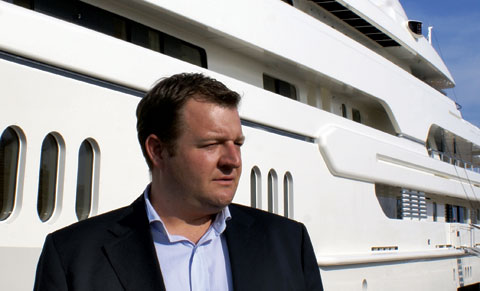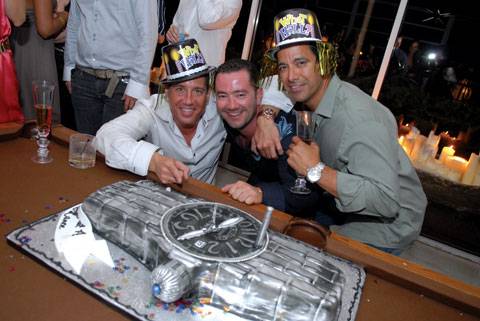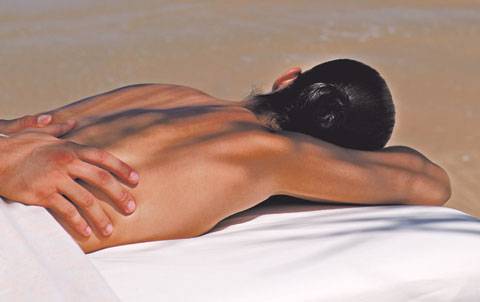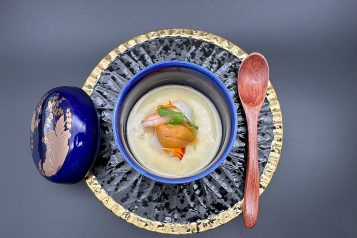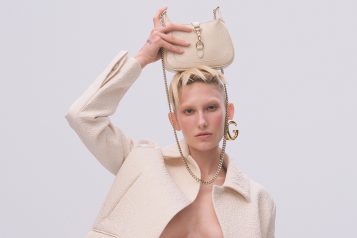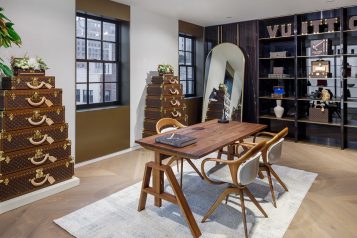Eric Lepeingle of the Rodriguez Group serves up yachts with a side of dreams.
By Jeremy Lissek
I was expecting stuffy. I was expecting trite with a slick suit and an upturned nose. I was sitting in the Camper & Nicholsons’s (a subsidiary of the Rodriguez Group) conference room in Miami Beach, awaiting a French superyacht broker, and I was ready to suffer the well-worn spiel of a B.S. artist. I certainly didn’t expect the happy-go-lucky, jeans and short-sleeved, half-popped Lacoste collared nonchalance of Eric Lepeingle.
And why wouldn’t he be in a good mood? As a French former Olympic sailor, Eric has had a lifelong love of the water. So he’s turned his pleasure into his business, which has translated into a company that caters to his clients’ favorite pastime. As he says, “We are pure pleasure; luxury. If you enjoy it, then do it…put the money on the water.”
If you’re going to put your money on the water, what better way to do it than with a high-end yacht from the Rodriguez Group. The company designs and markets boats with open bridges and is a world leader in this market sector. They also produce closed superstructure yachts. Rodriguez’s line includes three ranges: Oceano, Leopard, and Mangusta. The Mangusta 165, the largest open yacht in the world, won the Design Award at the Monaco Yacht Show in September 2007, and the Leopard 56-meter will top it in size and speed when the first one is delivered in 2010. Through C & N, the company also sells and charters yachts and offers services such as crew placement and technical assistance. For the particularly well-heeled boat enthusiasts, the company can serve as a general contractor for the building of a made-to-order pleasure boat of more than 40 meters in length.
These boats have revolutionized the industry. And Eric understands that the boats have changed, in terms of size and speed, due to a younger clientele. “The average age [of owners] for yachts that measure more than 85 feet is 40 years old,” he states. This has also affected the relationship between customer and broker. “They are my age. My generation. We have the same views on things. I know that boats need to be a place where they chill out. Where they don’t have any problems. When they’re in their office, they earn their money. If they have the same problems on their boats as in their offices, then they’ll stay in their offices and earn more money; I have the ticket to their pleasure. The boat is a platform, a place to think about nothing except having a good time, so on the human and the product side, we collaborate. It’s win-win with whatever luxuries they can afford.”
The one luxury that even billionaires can’t afford is time. When a 50-meter boat can do 40 knots, “we give them the 25th hour. When someone is based in London, they fly to Nice and they want to enjoy the majority of the weekend. Well, it’s four hours to go to St. Tropez on a normal yacht. With one of ours, it’s one-and-a-half hours. At the end of the weekend, that means they doubled the time and they doubled their enjoyment. Or say you’re in the United States. You want to have breakfast in Newport, lunch in Sag Harbor, and be in Manhattan by nighttime to make the opera. It wasn’t even imaginable five years ago. Because of us, it now is.”
But even more than giving his clientele base a complete range of the best, the fastest, and the most stunning luxury yachting products and services, it is the chase of the most elusive kind of gratification-real emotion-that gets Eric stoked when he wakes up in the morning. “We are like a family: my colleagues, our partners, our clients. And it has to be that way, or else I would not care so much about what I do. I sell emotion. Even with the richest person, I know the diamond is there, somewhere inside. Just take off your jacket, strip the uniform, and be yourself. We take care of the rest.”
That, of course, is not always so easy to do. But, as a case in point, Eric relays a story: “A client who has everything and can buy whatever he wants was in Cannes to visit the yachts. His manager comes in and says he wants to have the most perfect French experience possible. I say to myself, I’m sure he’s already eaten at all the big three-star Michelin places. He knows where they are. He doesn’t need me to bring him to a restaurant. So I call my wife and ask her to go to the meat shop and buy a côte de boeuf and organize everything and tell her that I’m coming to the pool with five people and we’re going to barbecue with us. So I tell him, ‘Tonight you’re going to have a real French experience.’ He asks what that is. I tell him, ‘It’s called home.’ ‘What?’ the client asks. ‘Come home,’ I tell him, ‘Why do you want to stay in your hotel, only to leave just so you can go to a restaurant with everyone in black and white, and get served in the exact same way you always do. The only thing I want is to have a good time.’ So he says, ‘You know what, you’re the first person I’ve dealt with that has invited me home.’ His eyes don’t look the same way they usually do. They’re smiling. You cannot do that in New York, in the office. You work all year for that one moment.”







